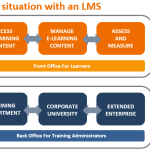Tutor LMS vs Podia: Key Differences Explained

In the ever-evolving landscape of online education, choosing the right platform to host and sell your courses can be a daunting task. Two popular options that have emerged in recent years are Tutor LMS and Podia. Both platforms offer unique features and capabilities that cater to different types of educators and businesses. In this article, we will delve into the key differences between these two platforms, providing a comprehensive comparison to help you make an informed decision. Whether you are an individual educator, a small business, or a large institution, understanding the nuances of Tutor LMS vs podia will be crucial in selecting the right tool for your needs.
Introduction to Tutor LMS and Podia
Overview of Tutor LMS
Tutor LMS is a powerful learning management system (LMS) designed specifically for WordPress users. It allows educators to create, manage, and sell online courses with ease. With a user-friendly interface and a plethora of features, Tutor LMS has gained popularity among educators looking to leverage the power of WordPress for their online teaching needs. The platform supports various multimedia formats, including videos, quizzes, and assignments, making it a versatile choice for course creators. Additionally, Tutor LMS offers extensive customization options, allowing users to tailor their courses to meet specific educational goals and branding requirements.
Overview of Podia
Podia, on the other hand, is an all-in-one platform that caters to creators of all kinds, including course creators, digital product sellers, and membership site owners. Unlike Tutor LMS, Podia is a standalone platform that does not require any additional software or plugins. It provides a seamless experience for users looking to sell online courses, webinars, digital downloads, and memberships. Podia is known for its simplicity and ease of use, making it an attractive option for those who may not have extensive technical knowledge. With built-in marketing tools and a focus on user experience, Podia aims to empower creators to monetize their knowledge and skills effectively.
Features Comparison
Course Creation Tools
When it comes to course creation, both Tutor LMS and Podia offer robust tools, but they cater to different needs. Tutor LMS provides a comprehensive course builder that allows educators to create courses using a drag-and-drop interface. Users can easily add lessons, quizzes, and assignments, and organize their content into modules. The platform also supports multimedia content, enabling educators to enhance their courses with videos, images, and audio files. Additionally, Tutor LMS offers advanced features such as course prerequisites, certificates of completion, and detailed analytics to track student progress.
In contrast, Podia simplifies the course creation process by offering a straightforward interface that allows users to create courses quickly. While it may not have as many advanced features as Tutor LMS, Podia focuses on providing essential tools that are easy to use. Users can create courses, add content, and set pricing options without the need for technical expertise. Podia also supports multimedia content and offers features like drip content, which allows educators to release course materials gradually over time. Overall, if you are looking for a more feature-rich course creation experience, Tutor LMS may be the better choice, while Podia excels in simplicity and ease of use.
Related Topic: Tutor LMS vs cornerstone lms: Key Differences Explained
Tutor LMS vs cornerstone lms: Key Differences ExplainedPayment Processing
Payment processing is a critical aspect of any online course platform, and both Tutor LMS and Podia offer different solutions. Tutor LMS integrates with various payment gateways, including PayPal and Stripe, allowing educators to accept payments directly through their WordPress site. This integration provides flexibility in managing transactions and offers users the ability to set up recurring payments for subscription-based courses. Additionally, Tutor LMS allows for customizable pricing options, enabling educators to create discounts, coupons, and payment plans to attract more students.
On the other hand, Podia simplifies payment processing by handling it all within its platform. Users can accept payments through Stripe and PayPal without the need for additional integrations. Podia also offers a straightforward checkout process, which can enhance the user experience for potential students. Furthermore, Podia provides features like affiliate marketing, allowing course creators to incentivize others to promote their courses and earn commissions on sales. In terms of payment processing, Podia may be more appealing for those who prefer an all-in-one solution without the need for additional configurations.
Marketing and Sales Features
Marketing and sales capabilities are essential for the success of any online course, and both Tutor LMS and Podia offer distinct features in this area. Tutor LMS provides basic marketing tools, such as coupon codes and discounts, to help educators promote their courses. However, it may require additional plugins or integrations to access more advanced marketing features, such as email marketing automation or sales funnels. This can be a drawback for users who want a comprehensive marketing solution without the need for extra tools.
In contrast, Podia shines in its marketing and sales features. The platform includes built-in email marketing tools, allowing users to create and send newsletters, promotional emails, and automated campaigns to their audience. Podia also offers sales pages, upsells, and the ability to create membership sites, making it a versatile choice for those looking to diversify their revenue streams. Additionally, Podia provides analytics and insights to help users track their marketing efforts and optimize their strategies. For those focused on marketing and sales, Podia may be the more advantageous option in the Tutor LMS vs podia comparison.
User Experience
Interface and Usability
User experience is a crucial factor when choosing an online course platform, as it directly impacts both educators and students. Tutor LMS offers a clean and intuitive interface, especially for those familiar with WordPress. The course creation process is straightforward, and users can easily navigate through the various features and settings. However, for individuals who are not well-versed in WordPress, there may be a learning curve involved in getting accustomed to the platform.
Related Topic: Tutor LMS vs Kajabi: Key Differences Explained
Tutor LMS vs Kajabi: Key Differences ExplainedOn the other hand, Podia is designed with simplicity in mind. The platform's interface is user-friendly and requires minimal technical knowledge to navigate. Course creators can quickly set up their courses, manage their content, and access marketing tools without feeling overwhelmed. Additionally, Podia's focus on user experience extends to students as well, providing a seamless learning environment with easy access to course materials and support. Overall, if you prioritize a straightforward and user-friendly experience, Podia may be the better choice in the Tutor LMS vs podia debate.
Customer Support
Customer support is another critical aspect to consider when evaluating online course platforms. Tutor LMS offers support through various channels, including documentation, tutorials, and a support ticket system. While the platform provides helpful resources, some users have reported that response times can vary, and the level of support may depend on the specific plan chosen. For those who require immediate assistance, this could be a potential drawback.
In contrast, Podia is known for its exceptional customer support. The platform offers live chat support, which allows users to get real-time assistance with their questions and concerns. Additionally, Podia provides a comprehensive knowledge base, tutorials, and community forums to help users troubleshoot issues and learn more about the platform. For educators who value responsive and accessible customer support, Podia may have the upper hand in the Tutor LMS vs podia comparison.
Pricing Structure
Tutor LMS Pricing Plans
Tutor LMS offers a range of pricing plans to accommodate different needs and budgets. The platform provides a free version with limited features, making it an attractive option for those just starting with online course creation. However, for users looking to access advanced features, such as quizzes, assignments, and certificates, the premium plans are necessary. The pricing for Tutor LMS premium plans typically includes a one-time fee for the plugin, along with optional add-ons for additional functionality. This pricing structure can be appealing for those who prefer a one-time payment model rather than ongoing subscription fees.
Podia Pricing Plans
Podia operates on a subscription-based pricing model, offering several tiers to cater to different types of creators. The plans typically include features such as course creation, email marketing, and payment processing. While Podia's pricing may be higher than Tutor LMS's premium plans, it includes a comprehensive suite of tools that can justify the cost for many users. Additionally, Podia does not charge transaction fees on sales, which can be a significant advantage for course creators looking to maximize their profits. Overall, the choice between Tutor LMS and Podia in terms of pricing will depend on your specific needs, budget, and preference for payment structures.
Related Topic: Tutor LMS vs MasterStudy: Key Differences Explained
Tutor LMS vs MasterStudy: Key Differences ExplainedConclusion
Which Platform is Right for You?
In conclusion, the choice between Tutor LMS and Podia ultimately depends on your unique needs as an educator or course creator. If you are looking for a feature-rich learning management system that integrates seamlessly with WordPress and offers extensive customization options, Tutor LMS may be the ideal choice for you. On the other hand, if you prefer an all-in-one platform that simplifies the course creation process and provides robust marketing tools, Podia may be the better fit. Both platforms have their strengths and weaknesses, and understanding the key differences in the Tutor LMS vs podia comparison will empower you to make an informed decision that aligns with your goals and aspirations in the world of online education.
If you want to discover other articles similar to Tutor LMS vs Podia: Key Differences Explained, you can visit the Tools and Reviews category.

Related Posts: